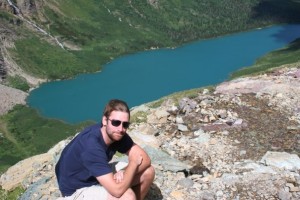We have much more to do and your continued support is needed now more than ever.
Drilling Impacts on Public Lands Missing from Presidential Debate
A spirited exchange at this week’s Presidential debate centered around energy development on public lands, specifically oil and gas drilling. Per usual, fact checkers immediately began investigating the claims by both Governor Romney and President Obama.
What was completely lost in the discussion is that increasing oil drilling in the United States will not bring down prices at the pump, and, since oil prices are set on the world market, more drilling here at home will do little to reduce gas prices. In fact, an Associated Press analysis of 36 years of Energy Information Administration data shows “no statistical correlation” between domestic oil production and gas prices. In short, we just can’t drill our way to cheaper gasoline. Increasing vehicle efficiency is a far better solution to decrease our dependency on oil and gas.

Also missing from all the finger-pointing over gas prices was any recognition of the fact that the explosion of drilling in this country over recent decades has had a profound impact on water resources, air quality, and fish and wildlife habitat. These vital resources suffer because of the direct cumulative impacts of the drilling process but also because burning fossil fuels is warming our planet and causing global climate change, which carry devastating consequences for decades to come.
We have yet to see enough detail in the debates, from either candidate, as to how they plan to protect wildlife, wild landscapes and recreational opportunities even as oil and gas permitting increases. Governor Romney’s energy plan proposes opening new, sensitive offshore areas for drilling, fast-tracking the Keystone XL pipeline, undermining environmental review, and turning over control of federal public lands to states for the purposes of energy development. However, nowhere in Governor Romney’s plan does it even mention the importance of the conservation of fish and wildlife, and we have yet to hear a commitment from the campaign to protect the water we drink and their air we breathe from more drilling.
For its part, the Obama Administration has taken steps to conduct oil and gas leasing more responsibly. In 2010, Secretary of the Interior Ken Salazar announced important reforms to ensure a more strategic approach to oil and gas development, one that would also conserve fish, wildlife and water resources. Unfortunately, we have yet to see many of these reforms fully implemented. Similarly, the administration has announced proposals to reduce the impacts of hydraulic fracturing (a process in shale gas drilling) and oil shale extraction, but none of these proposals has been finalized.
Both presidential campaigns would be well advised to lay out some specifics on how to have more responsible energy development and not just more of it. A recent poll showed that given a choice between protecting America’s public lands and prioritizing the production of oil, gas and coal, 49 percent of sportsmen want to protect public lands and just 35 percent choose fossil fuel production. Americans will continue to press their electoral candidates for specific plans on how to preserve our country’s great outdoors and wildlife, and the candidates would be wise to answer.
Read more about where Barack Obama and Mitt Romney stand on conservation in National Wildlife magazine’s special report.
You can do your part to demand a plan for conservation from electoral candidates. Take the pledge to speak up for wildlife in this election season and vote for lawmakers who will address the challenges we face.





















